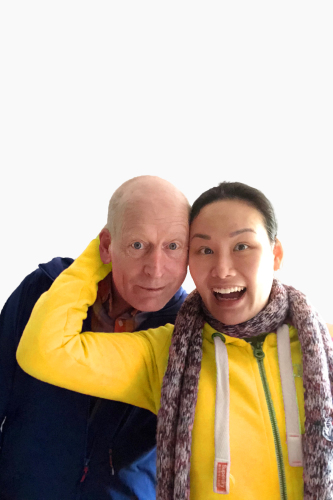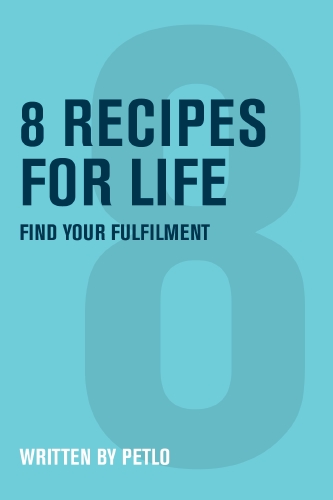Relationships are about compromise, but if you are always the one compromising then that relationship won’t be sustainable in the long term. If you want to enjoy a healthy and fulfilling relationship then you need to set boundaries, as self-help coaches Elaine Lo and Pet Sutton, AKA ‘Petlo’, explain.

By Petlo
For a lot of us, loving is giving endlessly. The concept of unconditional love has, however, confused many of us. If we have been there and done that, we have probably learned that giving endlessly simply doesn’t work. In most of these relationships, it is the taker who leaves, leaving us wonder what we’ve done wrong.
Unconditional love is loving a person as they are, including their flaws and eccentricities. They may be stingy, lazy, or envy others too much… yet with all their faults we accept them as they are and don’t discount them because of their flaws. When they overstep the mark in our relationship, we speak up – not because we think less of them in any way, or love them only conditionally, but because we want the relationship to be sustainable; and we love ourselves as well as loving them.
Unconditional love extends from the love of oneself outwards. If we don’t love ourselves, we cannot properly love others. We resort to giving endlessly because that is the closest thing to love for us, hoping the other person will reciprocate and make us feel loved. If we want to feel loved then we are actually in love with the idea of love. We hope that the relationship will solve our problems; will make us feel less lonely; will fulfil us. So we keep retreating and doing everything to please our partner hoping that they will remain in a relationship with us.
But even for those of us who love ourselves, we may still make the mistake of compromising endlessly. Because we have the faulty belief that relationships are about compromising – which is a common assumption. We have probably seen relationships break because one side or both sides are too selfish. We decide that the best thing to do is to keep others happy by always following along with their wishes. But are they really happy under this condition? They may think they are happy, as we think they are. But all they are is comfortable and not fulfilled. Gradually, we lose our lustre in their eyes and they leave.
Of course, compromising is important. It is also important that both parties get to compromise. Defending our boundaries doesn’t mean we don’t compromise; it means we compromise adequately (instead of over-compromising) and when our partner crosses the line, we let them know.
Defending our boundaries is showing respect for ourselves. If we don’t respect ourselves, why should we expect others to? Defending boundaries brings sustainability. If we keep retreating, accepting unfair treatment and convincing ourselves it is okay even when it is not, then two things will happen.
Firstly, we will waste away because of the issues that are piling up and eating us alive, and, secondly, the other party has no chance of adapting their behaviour to make the relationship work long-term – because they don’t know what is acceptable to us. We are the reason why the relationships don’t work; because we don’t speak up! Relationships are like tango – it doesn’t work when one side keeps retreating. Partners need a certain positive resistance from each other to press against.
So how do we defend our boundaries?
No Finger Pointing. We need to have a positive intention. If we judge the other person for what they did then we will likely communicate in an offensive way. Make sure we communicate for the sake of the relationship. A couple deserves to know what is acceptable and non-acceptable to each other so the relationship can last.
We’ve Got To Believe In The Relationship. If the relationship cannot stand honest communication, it probably isn’t worth our attention. Believe that the other person can understand that we are speaking up because we want the relationship to be sustainable.
Do Lovely Things For Each Other In The Normal Course Of Events. American businessman and author Stephen Covey coined the term ‘emotional bank account’ where goodwill is the currency. If we show ample love for each other in our daily lives, then when we need to defend our boundaries, we have enough credits in the bank account for the relationship to stand the scrutiny of honest feedback.
Be Brave And Be Ready To Let Go Of The Relationship. Sometimes the issue is so big that the relationship cannot stand the blow when we defend boundaries. That normally only happens when we don’t defend our boundaries in a timely fashion, i.e. we let issues pile up and when we speak up, it is already too late. This can also happen when the relationship is simply not meant to be – this relationship is likely to be built on the idea of love instead of real love.
If we don’t love ourselves enough, we will find it hard to defend our boundaries. But if we step outside of our comfort zone and do it anyway, we build self-love.
Remember – it is not about being selfish; it is about sustaining relationships that matter. Respect ourselves; respect our partner. Find the sustainable balance and communicate often in a non-judgmental, open, honest, and loving way.

Petlo have just published 8 Recipes for Life, a new self-help guide packed with practical wisdom for greater professional and personal life fulfilment. It is available now on Amazon UK priced £11.11.
For more information visit www.petlo.co.uk.
tagged in relationships
